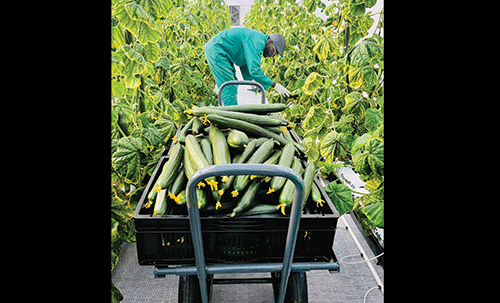The Eco Dialogue Collective, a new European Union-funded initiative, will support Namibia’s transition to a greener future by strengthening transparency and accountability in the management of natural resources such as green hydrogen, oil and gas.
“Namibia has an abundance of natural resources and precious ecosystems that need protection. But it also faces the effects of climate change, and the question of how all Namibians can benefit from its natural wealth,” said Peter Limbourg, Director General of Germany’s international broadcaster, Deutsche Welle (DW).
“Unbiased news and reliable facts are the basis for informed decisions. But this project goes beyond facts. This project listens to different perspectives – from communities, business leaders, policymakers and government. It is important to have this dialogue to ensure that every voice is heard.”
Running from 2025 to 2027, the Eco Dialogue Collective is jointly implemented by DW Akademie, NMT Media Foundation, the Institute for Public Policy Research (IPPR), and the Legal Assistance Centre (LAC). The project is funded by the European Union and German Development Cooperation.
Ian Dupont, EU Deputy Head of Mission to Namibia, emphasised: “CSOs and media are indispensable to democratic governance and sustainable development. They bridge societal divides, amplify marginalised voices and provide critical oversight that fosters transparency and accountability. The European Union deeply values this role, and remains committed to supporting initiatives that strengthen civic engagement, human rights and environmental justice.”
“Namibia stands at the threshold of a major economic transformation,” said Graham Hopwood, Executive Director at IPPR. “The project recognises that for all Namibians to benefit equitably from the country’s natural wealth, active public participation and oversight by civil society and the media are essential.”
Corinna van Wyk, lawyer with the LAC, highlighted: “In pursuit of sustainable development, every voice matters. Successful dialogues can transform disparate perspectives into a cohesive vision for our country.”
Zoé Titus, Executive Director of the NMT Media Foundation, added: “This project recognises that quality, public interest journalism is not a luxury; it is an essential public good. When communities have access to accurate, engaging and relevant information, they are better able to participate in shaping the policies that affect their land, livelihoods and futures.”
By empowering journalists, civil society actors and communities, the Eco Dialogue Collective aims to ensure that Namibia’s green economy and extractive industries are developed in a way that is inclusive, transparent and sustainable.
The project integrates three core components, namely content production, dialogue and advocacy as well as training and capacity-building.
By strengthening media and civil society, the Eco Dialogue Collective aims to enhance access to information, amplify the voices of affected communities and support inclusive decision-making in the era of green transformation.



